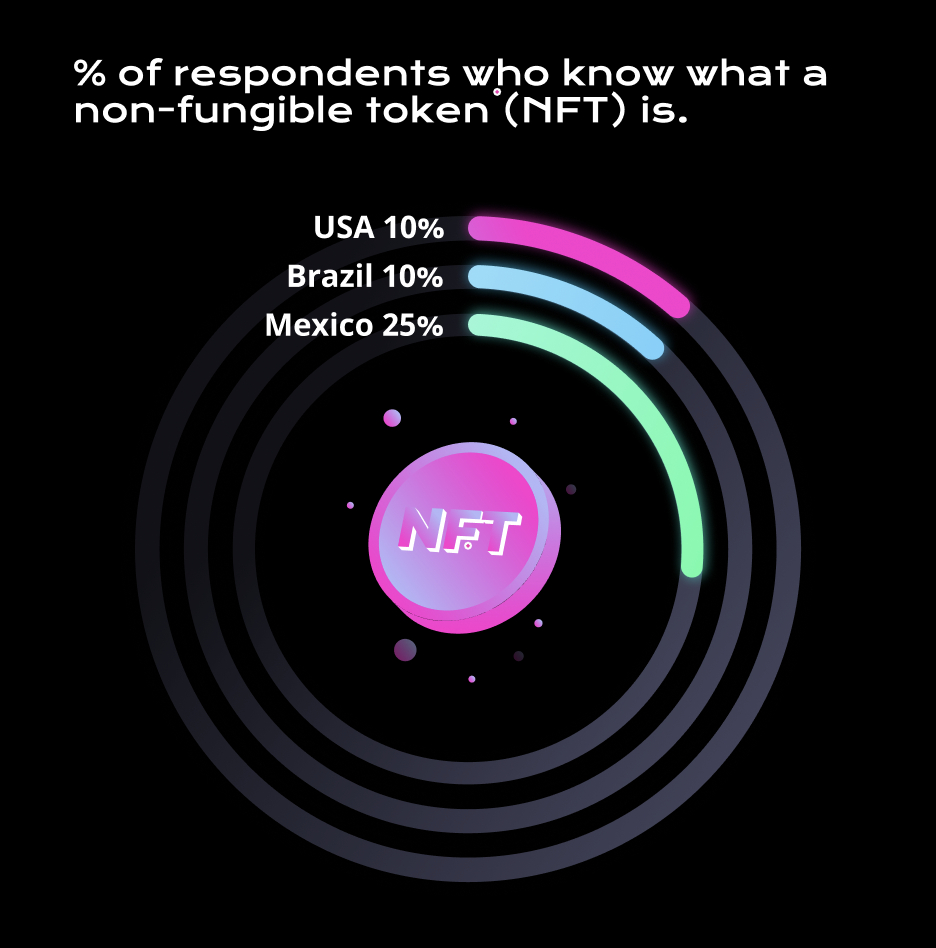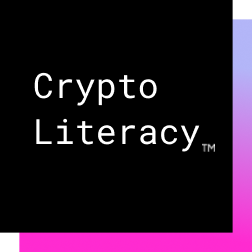NFTs still fuzzy
There are still a lot of newcomers to the metaverse. Data from the recent Global Crypto Literacy Survey shows that 6 out of 10 respondents couldn’t answer questions about non-fungible tokens (NFTs).
This data could actually be interpreted two ways: One, for many, 2021 feels like the year of the NFT. Between digital artist Beeple auctioning his NFT “Everydays” for $69 million at the famous auction house, Christie’s — to Facebook pivoting and going all in on a future build on virtual worlds and augmented reality, aka the metaverse — if anything, 2021 will go down as they year that NFTs became a big deal.
In other regards, the data could be interpreted the other way: 40 percent of respondents do know about NFTs, which again, given the newness might be a sign that innovative trends within crypto are gaining traction faster.

This trend is probably true of most new technologies. People that use the tech, or are curious about the tech, begin a journey of self-education that ultimately leads to becoming better informed about what they are using.
On wrinkle though, crypto is not really like any other technology adoption curve we have seen so far. One reason: Crypto is not just a new gadget or a new tool. It’s actually an entirely new way of doing things, or organizing society, of conducting business, and of investing in the future.
And sometimes crypto can feel confusing, or dense. But it doesn’t have to be. Now there are so many interesting entry points — from trading cash for crypto to using crypto in games or for collecting art — that hopefully the full extent of crypto and all of the use cases will resonate more widely.
Ultimately, crypto feeling more accessible and making it more intuitive is what will drive future waves of mass adoption. And in that spirit, it’s always a good time to learn more.
All about the NFT
Put simply, a non-fungible token is a unique digital tag that can be applied, or “minted” to digital artifacts. This system of unique tags, which are stored on decentralized blockchains, allow people for the first time ever to easily create and enforce things like digital property rights by showing a clear ownership history.
One of the most interesting trends emerging out of the NFT trend is that there seems to be a wide range of applications and appetite for unique digital tokens.
And this makes sense. In a lot of ways, crypto broadly — the idea of decentralized, peer-to-peer systems of digital exchange and value transfer — is really what was missing from the overall design and functionality of the internet.
Even today, big internet companies that capture and sell our data and identity are like the lords of yesterday. These extractive lords are allowed to operate digital monopolies based on mass media business models because there haven’t really been any good alternatives that can operate at the same scale and with the same efficiency.
And that’s where NFTs come in. Because people can clearly show ownership via NFTs, new economic models and new ways of conducting business that are more peer-to-peer oriented and less surveillance capitalism driven are finally possible.
On top of that — we are already seeing that NFTs will unleash a new wave of creativity and individual expression on the internet. Giving artists, creators, and people that build and make things well-defined property rights and a means to sell the products of their creativity directly to global audiences without an intermediary or gatekeeper will be huge, and potentially alter the way that individual artists and other creatives are able to make a living.
Maybe the biggest NFT trend is the role that non-fungible tokens will play in building out the metaverse. Still in the earliest of days, the metaverse, a fully virtual and digitally immersive world, will likely be huge for the creation and adoption of the NFT model.
Learn more about this and other topics by taking courses in the bitcoin, NFT, DeFi, and security sections of the site. And be sure to take the crypto literacy quiz.
